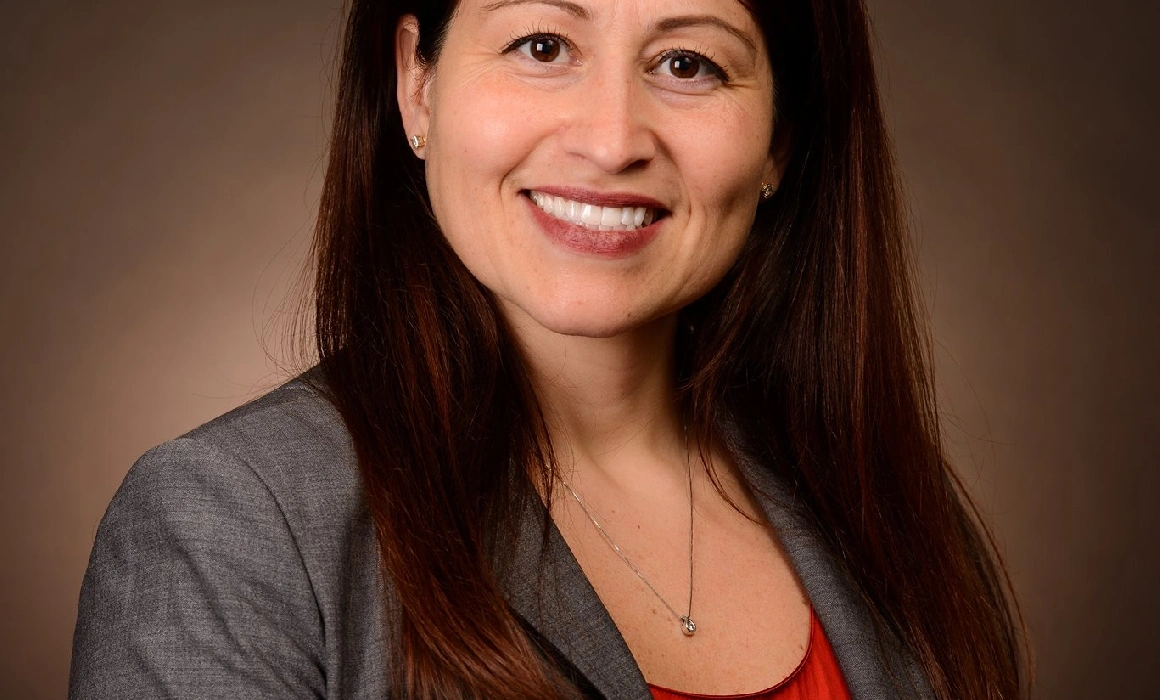Scroll down for English
Adriana Umaña - Taylor este profesor în domeniul educației la Harvard Graduate School of Education. Cercetările sale se concentrează pe modul în care factorii ce țin de individ sau de mediul din care provine afectează dezvoltarea adolescenților. Munca profesoarei Umaña urmărește să reducă inechitățile în rândul tinerilor care aparțin minorităților etnice și rasiale ce îi împiedică să-și găsească un echilibru psihologic și să obțină rezultate mai bine în sistemul de învățământ.
Într-un interviu pentru Școala 9, cercetătoarea de la Harvard atrage atenția că pandemia a afectat în special copiii din comunitățile vulnerabile. Pe de altă parte, Umaña crede că actuala criză de COVID - 19 poate să fie văzută și din perspectiva oportunităților, pentru că a expus mai mult ca oricând inechitățile, dar și pentru că provocările legate de pandemie i-ar putea face pe tineri să-și dezvolte o rezistență mai mare pentru viața lor de adulți.
Școala9: În ce măsură credeți că această pandemie a adâncit decalajul educațional dintre copiii majoritari și minoritari?
Adriana Umaña - Taylor: Extrem de mult. Comunitățile marginalizate sunt afectate în special de pandemie - din mai multe motive structurale. Nu au acces la aceeași îngrijire de calitate, nu au acces la aceleași resurse, iar părinții lor se află deja în poziții marginalizate. Astfel, aceștia fie își pierd job-urile, fie trebuie să meargă la locuri de muncă care îi pun în pericol. Toate aceste lucruri reprezintă un motiv de stres pentru familii, în special pentru copii, și pot avea un impact negativ asupra rezultatelor elevilor la școală, a capacității lor de concentrare și de-a învăța.
Din cauza acestei pandemii, credeți că familiile vor juca un rol și mai important în comparație cu școlile?
Familiile au un rol mai important pentru procesul de învățare al copiilor, deoarece acum educația se face mai mult de acasă. Când procesul de învățare are loc în familie, departe de spațiul școlii, vei avea nevoie de anumite resurse în locuință. Dar dacă părinții sau familiile extinse nu dispun de resursele necesare?
Este important să reținem că nu este vorba doar de prezența fizică a părinților sau a altor rude acasă. Una dintre problemele membrilor comunităților minoritare este că aceștia fac parte din categoria lucrătorilor esențiali. Așadar, mulți dintre ei nu sunt fizic acasă. Dar chiar dacă sunt prezenți fizic, atunci când există atât de multe atacuri și abuzuri asupra comunității lor, cei care ar trebui să aibă grijă de copii sunt epuizați și lipsiți de resursele psihologice necesare pentru a se conecta cu cei mici astfel încât să-i sprijine în procesul de învățare.
Și copiii trebuie să gestioneze toate acestea când văd că membrii comunității lor, cei dragi, au probleme din cauza pandemiei.
Cum vedeți impactul acestui stres cauzat de pandemie în rândul copiilor în viitor?
„Nu există nicio îndoială că adolescenții și copiii care se dezvoltă în acest context pandemic vor fi diferiți.“
Dar ar trebui să ne gândim, de asemenea, la ce oportunități poate oferi această pandemie pentru unii dintre tineri în ceea ce privește construirea cu adevărat a rezistenței și capacității de a persevera în fața provocărilor; abilitatea de a privi înapoi la acest moment din viața lor și de a vedea că s-au confruntat cu diferite probleme, dar au învățat din aceste experiențe.
Și, în calitate de părinți sau educatori, este important să gândim din această perspectivă și să-i ajutăm pe tineri să vadă asta. Există oportunități, există modalități prin care putem deveni mai puternici, mai buni și să perseverăm prin provocări.
Trebuie să insist. Ce va schimba pandemia la această generație de copii și de adolescenți ?
Nu am un răspuns exact pentru cum va arăta. Cred că vom vedea cu siguranță efectele acestui stres, dar va exista o mare variabilitate în ceea ce face stresul pandemiei acestei generații și cum se va manifesta peste un deceniu de acum. S-ar putea să nu vedem efectele când vor avea 18 sau 19 ani, dar le vom vedea când vor fi mai în vârstă.
Diversitatea din școli nu ar trebui să fie tratată ca într-un târg multicultural
Cum putem face din școli un loc mai sigur pentru copiii din rândul minorităților?
Una dintre cele mai mari provocări este în privința cadrelor didactice. Nu cunosc situația educatorilor din România, dar pot vorbi despre Statele Unite. Aș spune că una dintre cele mai mari provocări în privința asigurării unui spațiu sigur pentru copii, referitor la problemele de rasă și de etnie, este legată de faptul că profesorii noștri, ca grup, se află în locuri foarte diferite în termeni de înțelegere a dinamicii rasiale în societatea noastră.
În general, ei sunt foarte dedicați să se asigure că școlile sunt un loc sigur pentru elevi, dar pentru unii profesori, un spațiu sigur, în ceea ce privește problemele rasiale, se bazează pe noțiuni stereotipice și nu pe o înțelegere clară a ceea ce înseamnă cu adevărat pentru ei (n.r.- pentru copii) să provină din comunități minoritare.
„Cred că una dintre cele mai mari provocări este să ne concentrăm pe formarea profesorilor cu privire la problemele de rasă și etnie într-un mod care să fie relevant, nu superficial.“
Nu ca într-un târg multicultural, în care acceptăm că toată lumea are un fel de moștenire și fiecare dintre are o mâncare diferită pe care o vom aduce la eveniment.
Ce măsuri ar trebui luate pentru profesori?
Trebuie să formăm educatorii astfel încât să fie pregătiți să abordeze aceste subiecte cu copiii. Trebuie să le oferim un spațiu sigur și, de asemenea, timp să poarte conversații cu copiii, în loc să prezinte o abordare mai colorată ca să creadă că suntem cu toții egali. Nu așa funcționează societatea noastră.
Avem o prejudecată, implicită, pe care nu o conștientizăm și trebuie să învățăm să o recunoaștem pentru a începe cu adevărat să creăm un spațiu sigur în școli. Cred că acesta este un aspect fundamental și critic pentru ceea ce ar trebui să facem.
Aceste probleme sunt vizibile, nu reprezintă ceva de care copiii n-au habar. Adesea, școlile prezintă o perspectivă de parcă „aceste probleme nu există, așa că nu vom vorbi despre ele“.
Pentru că „în această școală“ credem că toată lumea este la fel, nu? Dar mesajul care îi este transmis copilului este că de fapt nu suntem toți la fel și că nu suntem egali. Lipsa conversațiilor aprofundate în școli este unul dintre principalele motive pentru care copiii devin adulți care nu vor să vorbească despre aceste probleme.
Școala este un spațiu important pentru ca elevii să se simtă respectați și că pot primi răspunsuri. Școala este mediul prim care își analizează realitatea.
Cât de important este pentru copiii din rândul minorităților să vadă profesori sau directori din comunitățile lor?
Este foarte important, deoarece copiii au nevoie să se vadă reprezentați în conducere. Imaginați-vă un copil care trece prin școală și directorul sau profesorii sunt întotdeauna oameni din rândul majoritarilor și nu reflectă niciodată mediul din care provine el. Care este mesajul pe care îl primește copilul? Oameni ca mine nu sunt niciodată în poziții de putere și trebuie să existe un motiv întemeiat pentru asta.
Credeți că această pandemie ar putea motiva statele sau alte instituții internaționale să se preocupe mai mult de copiii din medii vulnerabile, inclusiv să investească mai multe resurse pentru ei?
Cred că o consecință neintenționată sau neașteptată este că a evidențiat și a plasat un reflector asupra inechităților care există în societatea noastră. În Statele Unite, în special, acest reflector a arătat că, dintre inechitățile din prezent, foarte multe sunt legate de rasă. Asta sugerează cercetătorii și oamenii de știință de mult timp. Mi se pare imposibil să nu observăm inechitățile care au fost scoase la iveală de această pandemie.
Interview with Harvard professor Adriana Umaña-Taylor: We will certainly see the effects of pandemic stress on children
Dr. Adriana Umaña-Taylor, professor at the Harvard Graduate School of Education, explains in an interview for Școala 9 how the COVID-19 pandemic has affected children among ethnic and racial minorities and if the current generation of children and adolescents will show its effects in adulthood.
Dr. Adriana Umaña-Taylor is Professor of Education at the Harvard Graduate School of Education at Harvard University. Her research focuses on understanding how individual and contextual factors affect the development of adolescents. Her work seeks to apply developmental science in a manner that reduces ethnic-racial disparities in psychological and academic adjustment and, in turn, promotes social justice.
In an interview for Școala 9, the Harvard researcher points out that the pandemic has particularly impacted children from vulnerable communities. On the other hand, Umaña believes that the current COVID-19 crisis can also be seen in terms of opportunities because it has exposed inequities more than ever, but also because these challenges could make young people more resilient in their adult lives.
Școala9: To what extent do you think this pandemic has deepened the educational gap between majority and minority children?
Adriana Umaña-Taylor: Tremendously. Marginalized communities are particularly affected by the pandemic for a number of structural reasons. They don’t have access to the same quality care, they don't have access to the same resources, and parents are already in marginalized positions. So they are either losing their jobs or they're having to go to jobs that are placing them at risk. All of this is a source of stress for families, especially children, and can have a negative impact on students’ performance in school, their ability to concentrate, and their ability to learn.
Because of this pandemic, do you think that families will play an even more important role in comparison to public schools?
Families are playing a more important role in children’s learning because now more education is done at home. When the learning process takes place in the family, away from the school space, you will need certain resources in the home. But what if parents or extended families do not have those resources?
It’s important to note that it’s not just about the physical presence of parents or other relatives at home. One of the concerns minority community members is that they often belong to the category of essential workers, so many of them are not physically at home. But even if they are physically present, with their communities facing regular attacks and abuse, caregivers are often deprived of the psychological resources that they need in order to engage with their children and support them in the learning process.
And the children themselves have to cope with all of this when they see that members of their community, their loved ones, are suffering from this pandemic.
How do you see the impact of this pandemic stress on children in the future?
“There is no doubt that adolescents and children who are developing in this pandemic context will be different.”
But we should also think about what opportunities this pandemic can provide for some young people in terms of truly building resilience and the ability to persevere in the face of challenges; the ability to look back on this moment in their lives and see that they faced these different challenges, but have learned from these experiences.
And as parents or educators, it’s important to think from this perspective and help young people see that. There are opportunities, there are ways we can become stronger, better, and persevere through challenges.
I have to follow up on this thought. How is this generation of children and teenagers going to be different because of the pandemic?
I don't have a specific answer for what that’s going to look like. My guess would be that we are definitely going to see effects of this pandemic stress, but there’s going to be a lot of variability in what this stress does to this generation and how it actually manifests a decade from now. We may not see it not even when they are 18 or 19 years of age, but we will see it when they're older.
How can we make schools a safer place for children from all minorities?
This is one of the biggest challenges facing our educators. I don't know anything about the educational workforce in Romania, but I can really speak about the United States. I would say that one of the biggest challenges that our forces are facing in terms of providing a safe space for children as it pertains to issues of race and ethnicity is that our educators, as a group, are in very different places in terms of understanding racial dynamics in our society.
As a whole, they are very committed to making sure that schools are a safe place for students, but for some teachers, a safe space with respect to racial issues is based on stereotypical notions and not on a clear understanding of what it really means for them to be from minoritized backgrounds.
So I feel like one of the biggest challenges is to really emphasize and focus on educating our educators on issues of race and ethnicity in a meaningful way, not a superficial way.
Not as in a multicultural fair, where we recognize that everybody has some sort of heritage and we each have a different food that we're going to bring to that.
What measures should be taken concerning teachers?
We need to provide our educators with training so that they’re prepared to engage with these topics with kids, a safe space and also time to have conversations with children, rather than presenting more of a colorblind approach and just believing that we’re all equal. That’s not how our society is.
We have an implicit bias that we are unaware of and that we need to learn to recognize in order to really start to create a safe space in schools. So I think that’s really a foundational and critical aspect of what we need to be doing.
These issues are visible, they’re not something that children are unaware of. Oftentimes, schools present a perspective as if “these problems do not exist, so we’re not going to talk about it”. Because in this school, we believe that everybody’s the same, right? But what it does is, it sends a message to the children who see and experience that we are not all the same and that everybody is not equal, that there is no place where this inequity is really recognized. The lack of meaningful conversations in schools is one of the main reasons children become adults who don’t want to talk about these issues.
A school is a critical place for children to be able to feel respected and to feel like they can get answers. School is their reality check.
How important is it for children from minority backgrounds to see teachers or school principals from their communities?
It’s very important because children need to see themselves represented in the leadership. Imagine a child going through school and the principal or the teachers are always people from the majority background and never reflecting the children's’ own background. What is the message the child is getting? “People like me are never in positions of power and there must be a good reason for that”.
Do you think this pandemic could motivate states or other international institutions to care more about children in vulnerable environments, including allocating more resources for them?
I do think that one unintended or unexpected consequence is that it has highlighted and placed a bright spotlight on the inequities that exist in our society. In the United States, in particular, that spotlight has made it clear that the inequities that exist are very much along the lines of race. This is something scholars and scientists have been suggesting for a long time. It seems to me that it’s impossible not to notice these inequities because of the ways they have been demonstrated during this pandemic.











